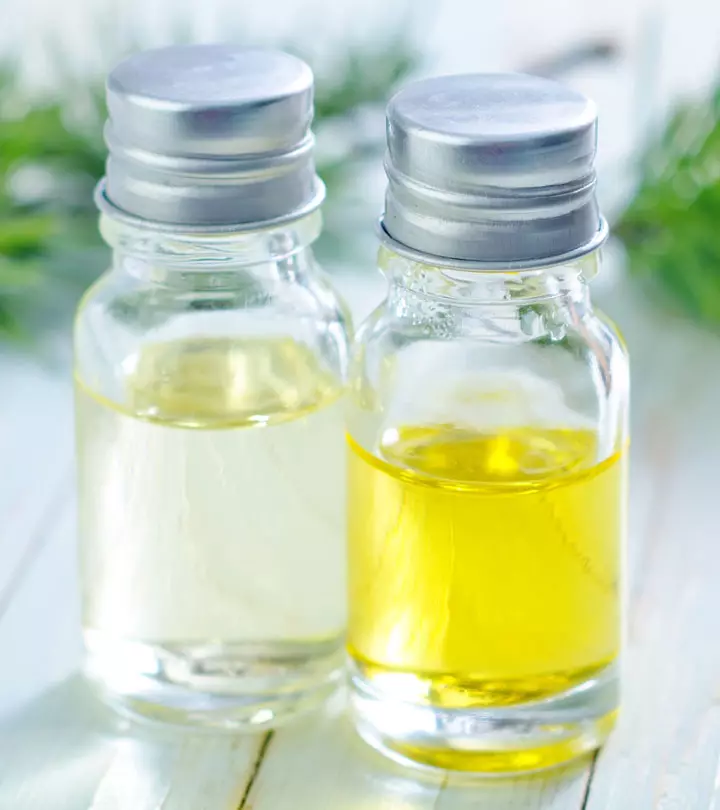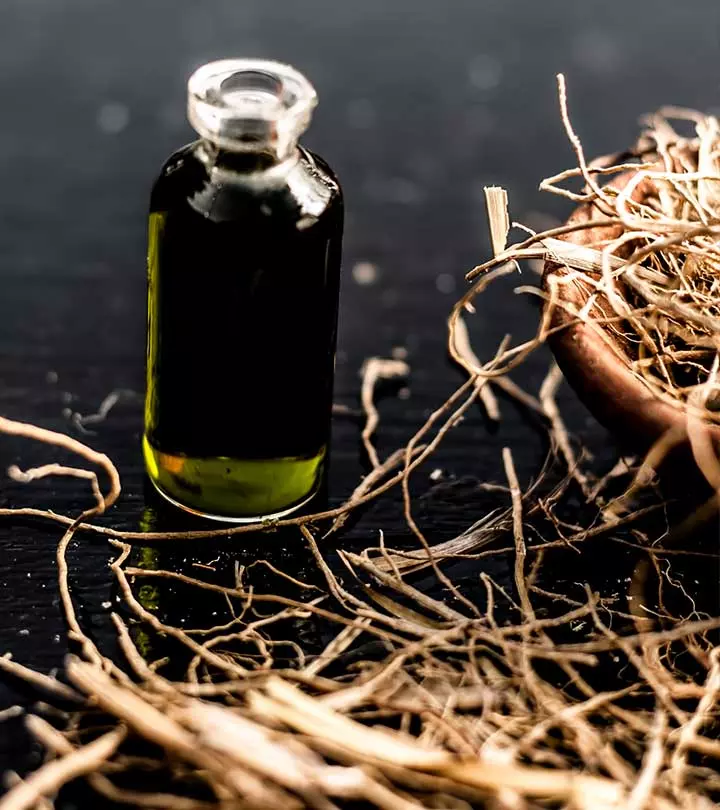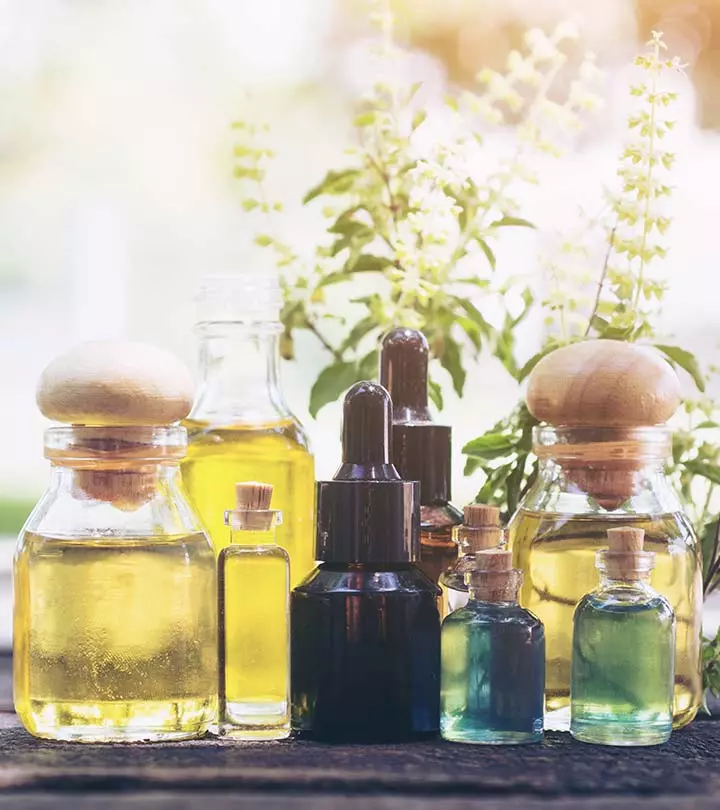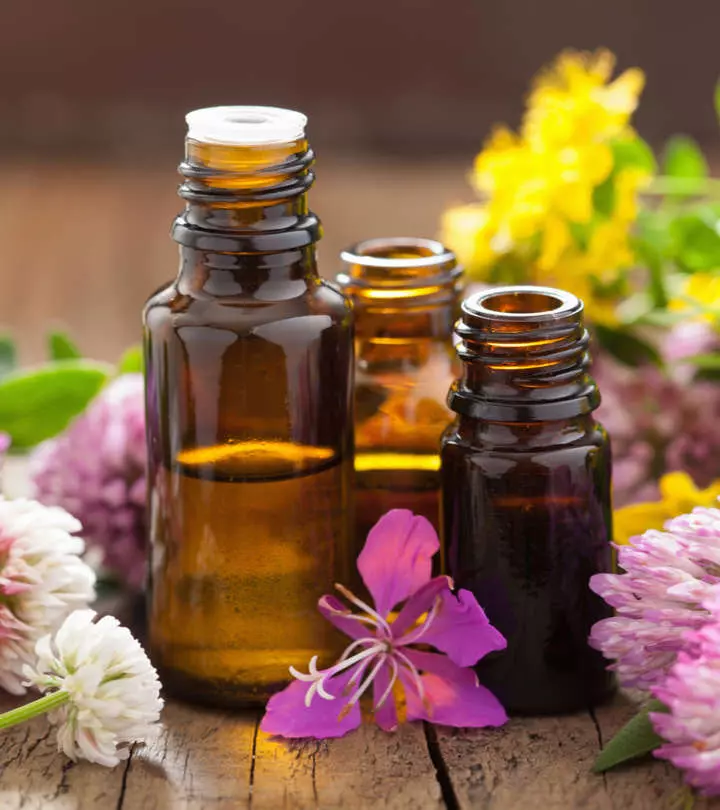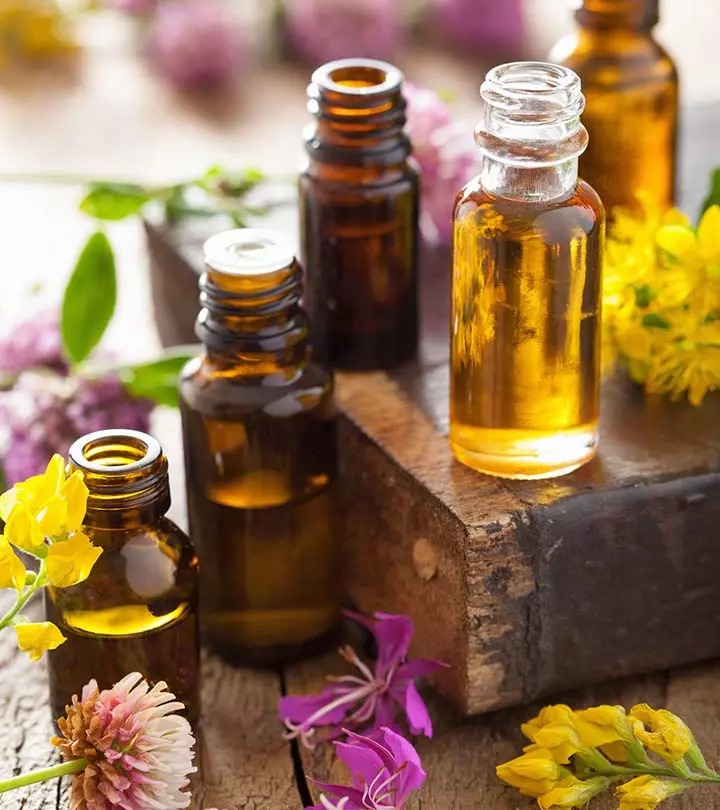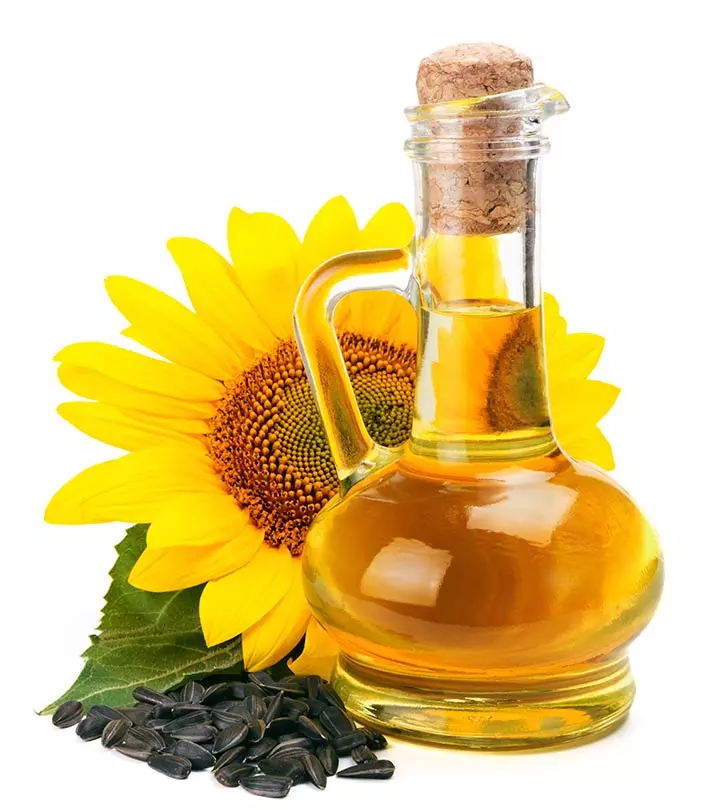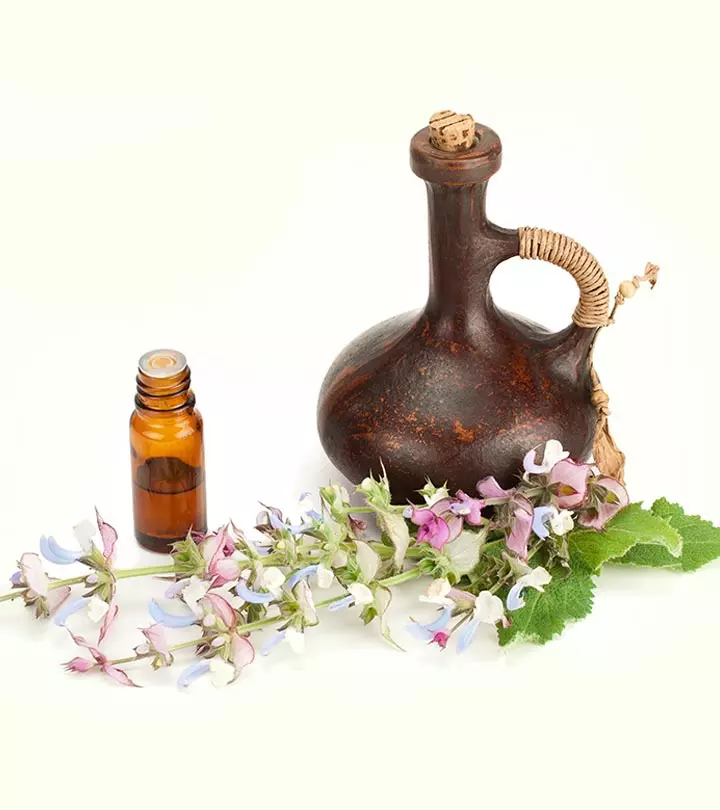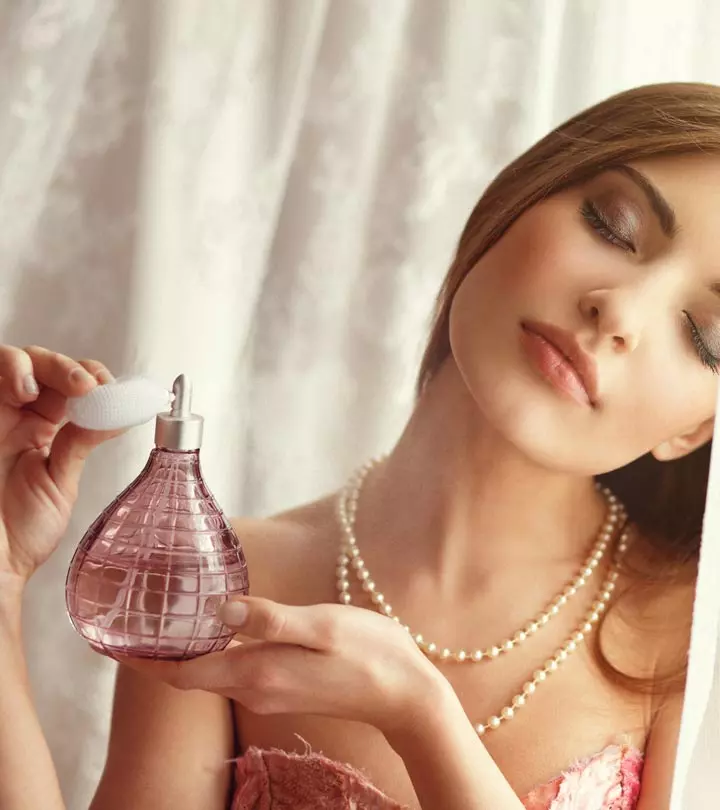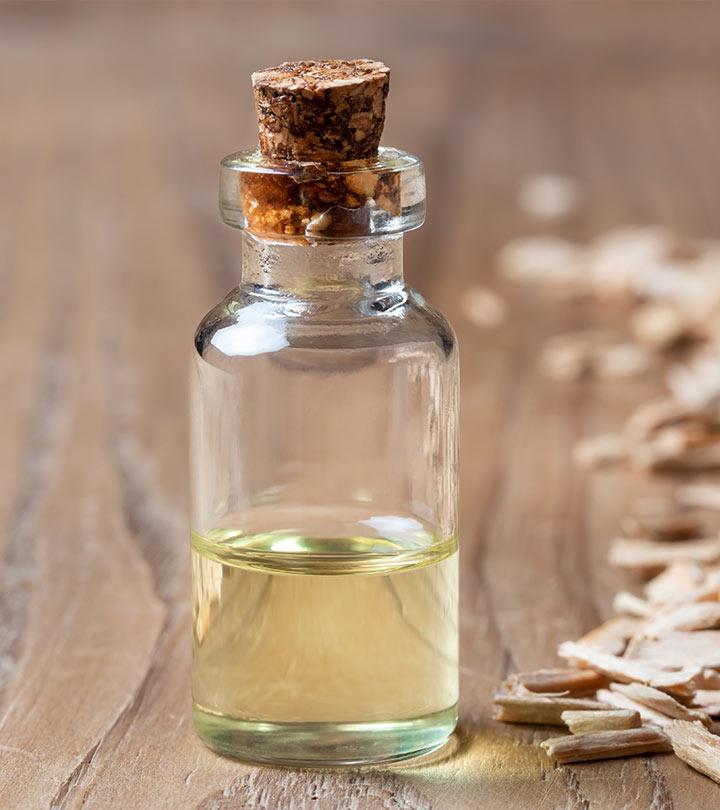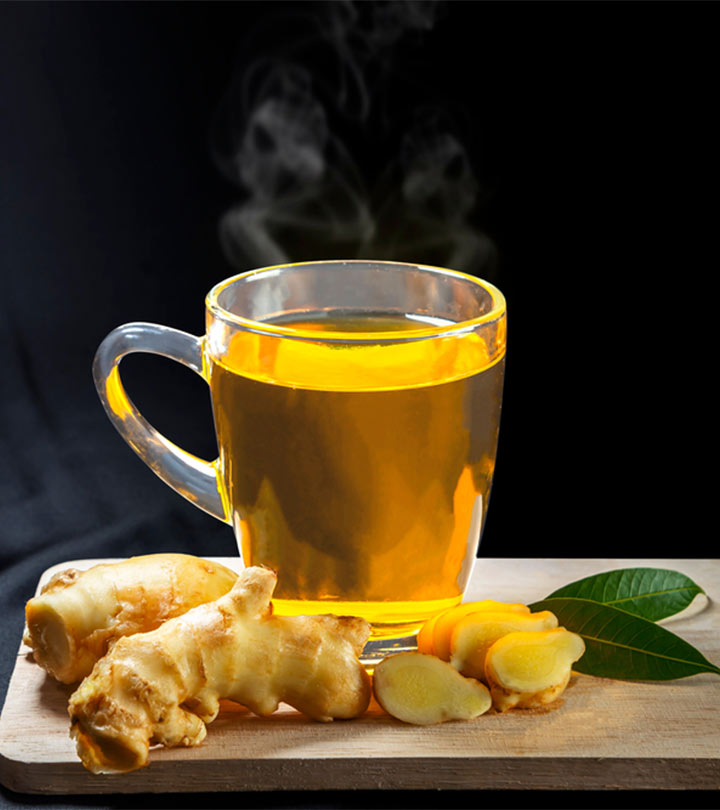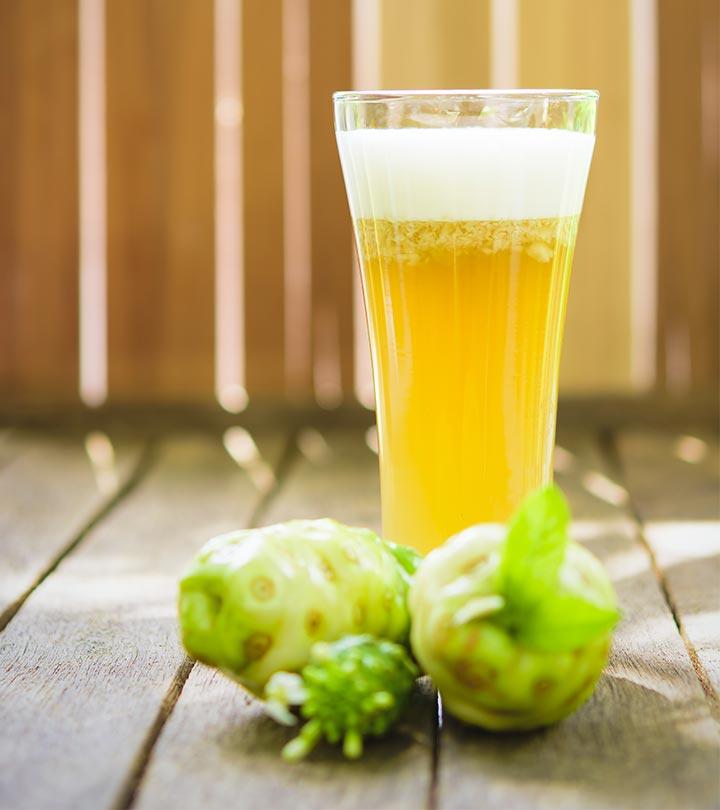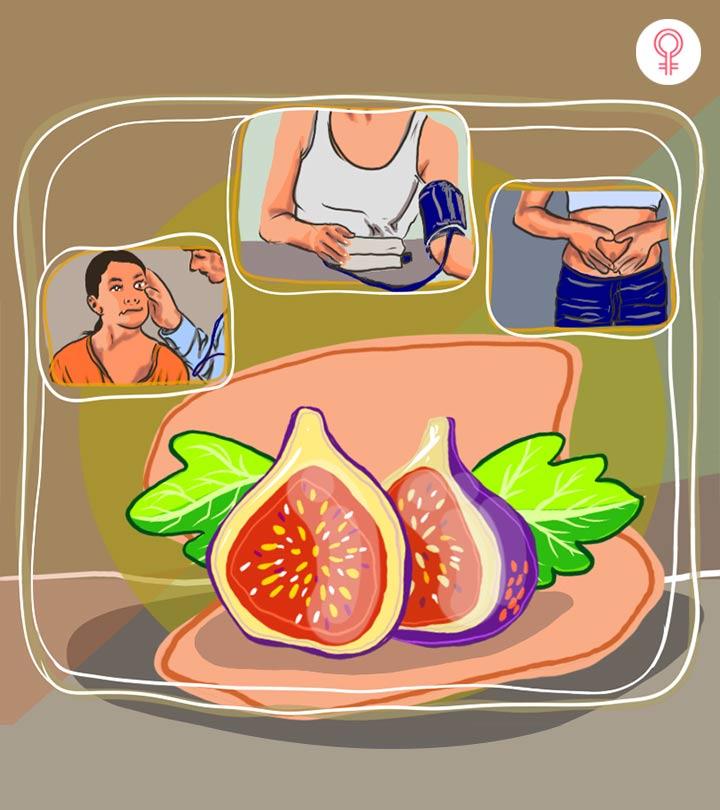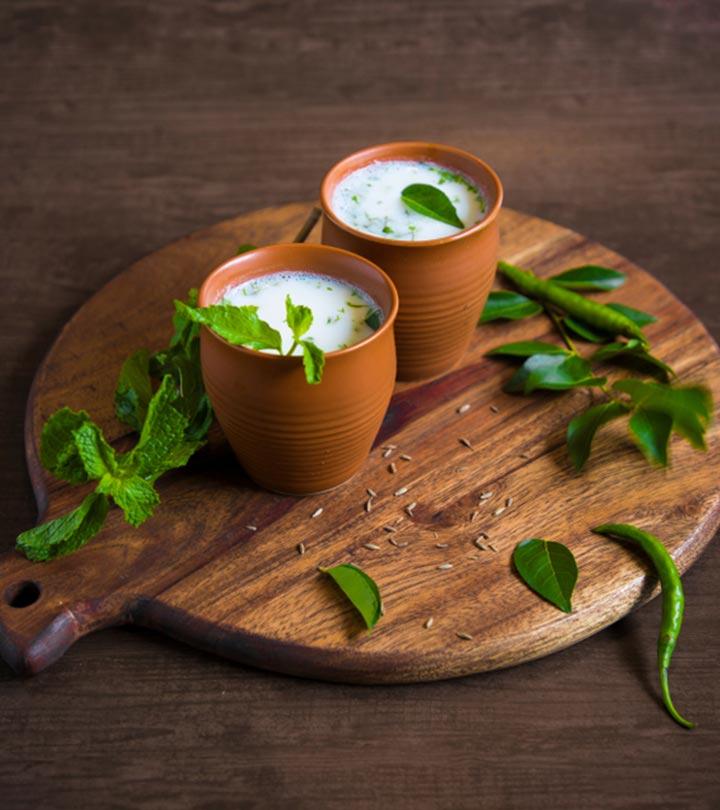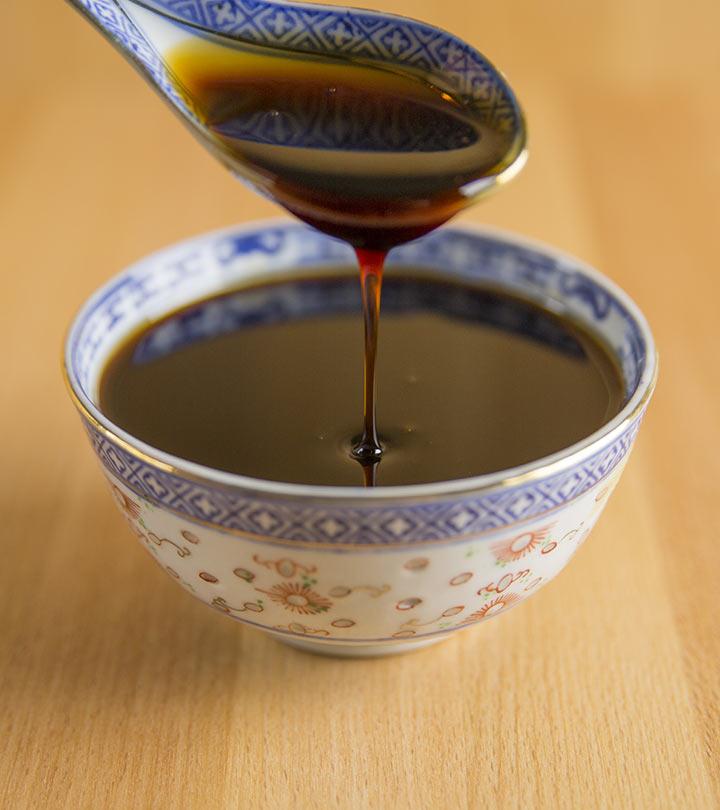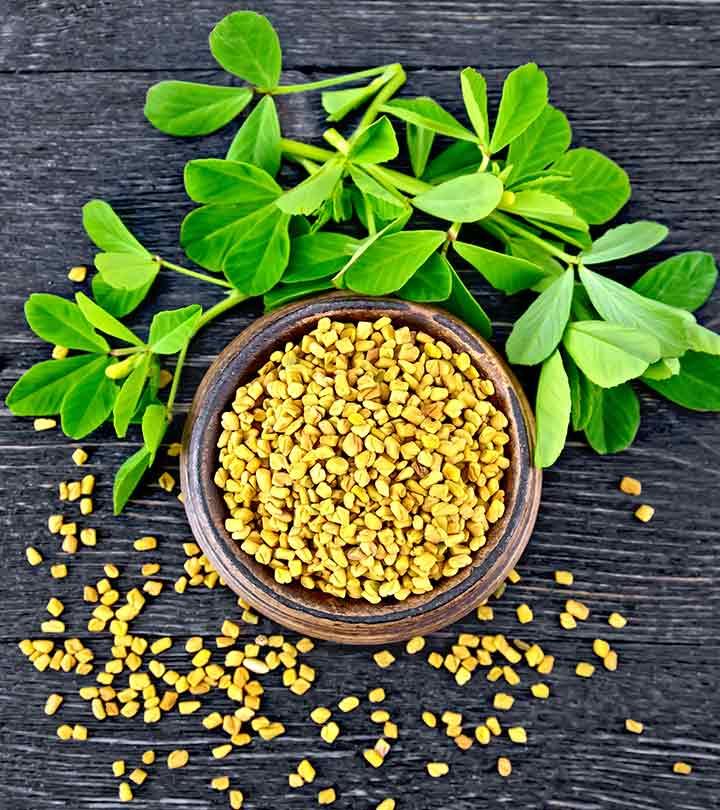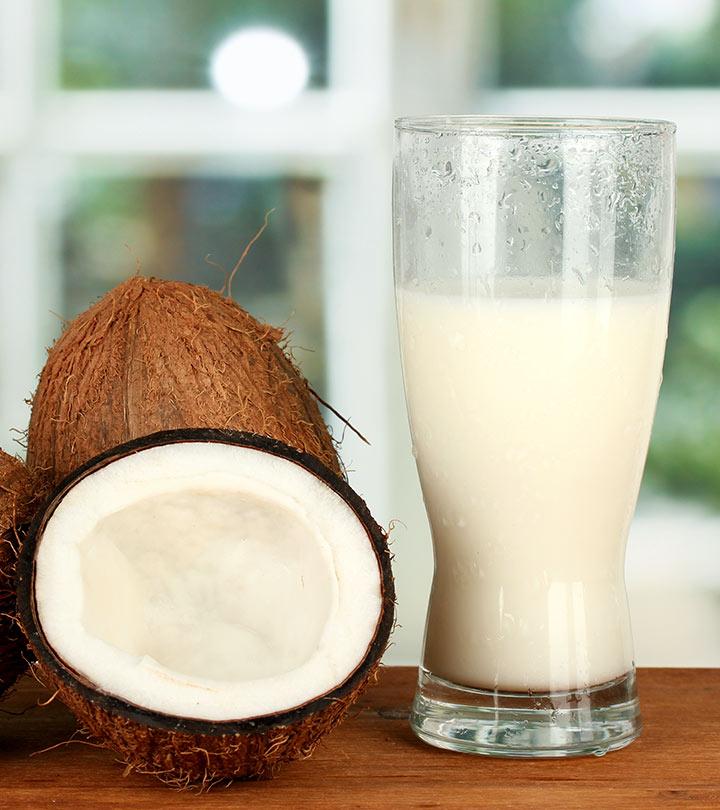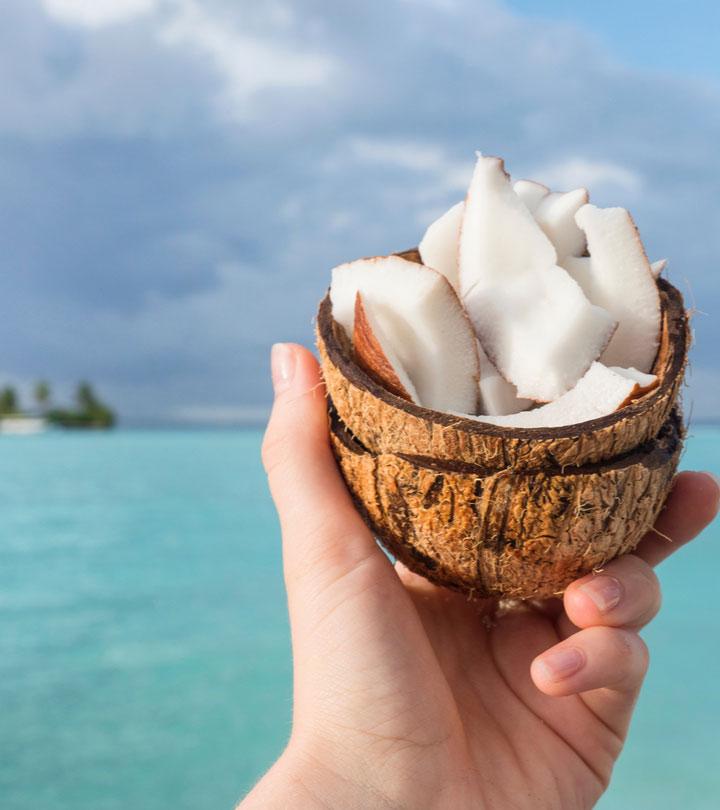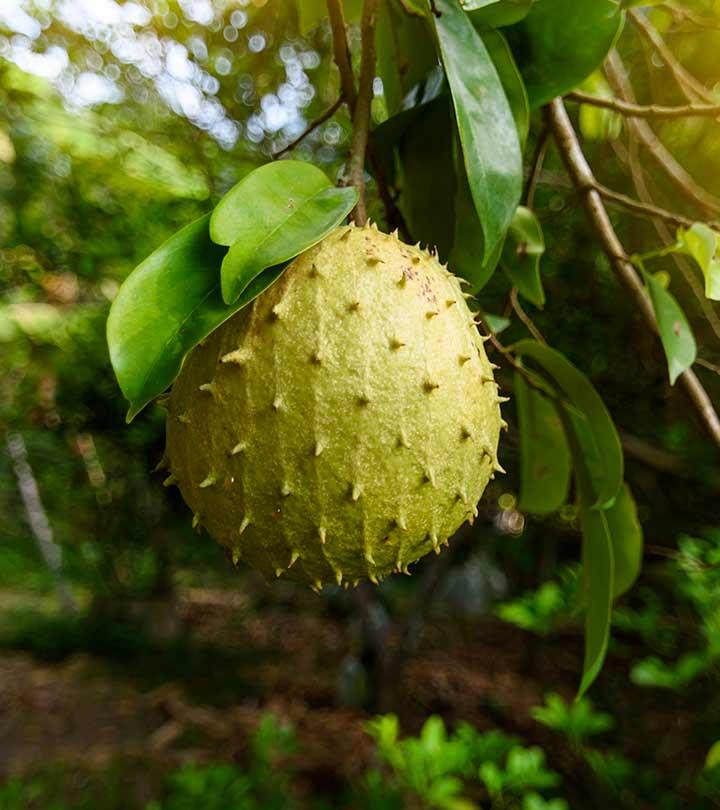Top 8 Benefits Of Patchouli Essential Oil For Skin, Hair, And Health
The invigorating smell of this essential oil helps calm your mind and uplift your senses.
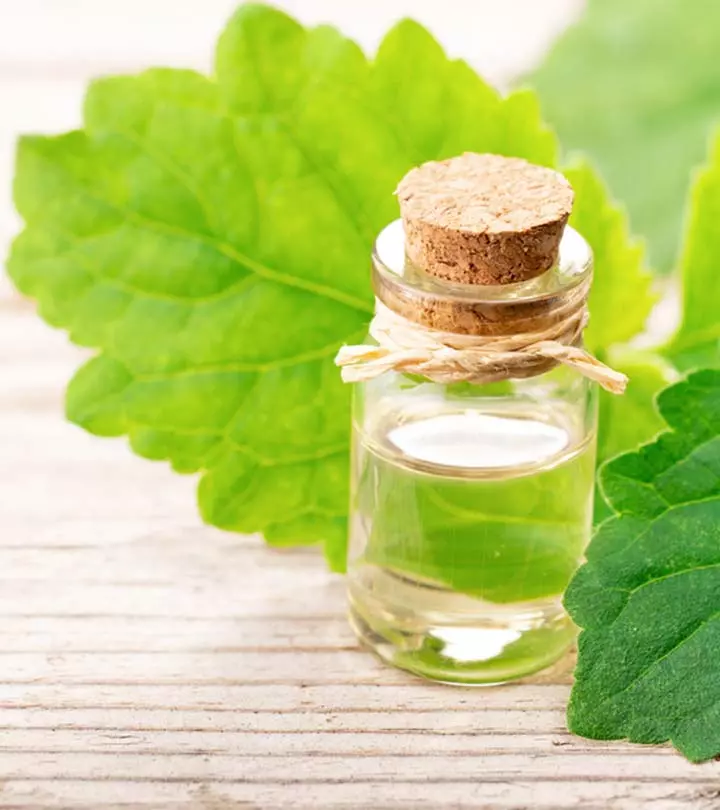
Image: Shutterstock
Patchouli essential oil has smitten the entire perfume industry with its sensual, woody, voluptuous notes. There is a distinct base note to this iconic scent of the sixties which evokes a feeling of warmth. This natural healing oil boosts spiritual uplifting, calms your mind, and keeps you grounded.
Patchouli oil is also said to offer many skin and hair benefits. It may help you get rid of wrinkles, blemishes, and dandruff. This oil’s antibacterial, anti-inflammatory, antifungal, and antiseptic properties are also said to help you treat various skin and hair issues. So, what is patchouli oil? Let’s get the answer to that and learn more about the benefits of this essential oil for hair, skin, and health in this article. Take a look!
 Know Your Ingredient: Patchouli Essential Oil
Know Your Ingredient: Patchouli Essential OilWhat Is It?
A golden-orange or dark brown oil made using the dried and fermented leaves and stems of the patchouli herb.
What Are Its Benefits?
It promotes healthy skin and scalp, fights bacterial infections, and helps you sleep well.
Who Can Use It?
Anyone can use this except people on blood thinning medications.
How Often?
You can dilute 1 to 2 drops of patchouli essential oil in coconut oil for daily use.
Caution
Avoid using this oil if you are pregnant or breastfeeding. Undiluted patchouli oil can cause skin irritation, itching, or redness.
In This Article
What Is Patchouli Oil?
Patchouli essential oil is made by steam distilling the dried leaves of patchouli, an aromatic herb. Patchouli, scientifically known as Pogostemon cablin Benth, belongs to the mint family Lamiaceae. A wide range of herbs like peppermint, lavender, and rosemary come from this family.
The color of patchouli oil varies from dark yellow to dark brown. This viscous oil has a musky, earthy aroma that ages well. It has a sweet initial note followed by a rich, earthy finish (1).
Patchouli is a tropical South Asian perennial herb. For centuries, it was used in rituals and oriental perfumery. However, its popularity peaked in the 1960s with the hippie movement (2).
Aromatherapist Wendy Gardner recalls, “Patchouli is the oil of the Hippy era!”
 Fun Fact
Fun FactThis essential oil contains many unique features not found in any other essential oils. Keep reading to learn about them.
Features Of Patchouli Essential Oil
Patchouli oil is also used in cosmetics, aromatherapy, and even tobacco. “It’s great for soaps, lotions, and shampoo,” Gardner adds.
Leanna Serras of Fragrance X says, “Patchouli oil has gotten a bad rap because of the ’60s, but it’s been a staple in luxury perfume for a long time. Chanel’s Coco Mademoiselle, Viktor & Rolf’s Flower Bomb, Thierry Mugler’s Angel, and Etro’s Patchouly all feature patchouli prominently.”
Patchouli essential oil is also good on the skin. It is suitable for all skin types. Yet its most notable feature is its scent.
Serras adds, “It’s an earthy, sensual scent that adds mystery and exoticism to any fragrance. Spicy, sweet, and smoky, it’s an unforgettable addition to perfume. Use patchouli when you want to make a statement, when you want to seduce, or when you want to boost your spirits.”
Numerous compounds contribute to its rich scent. The major components present in patchouli oil are patchoulol, δ-guaiene, α-guaiene, α-patchoulene, and seychellene (3). Some of the compounds are present only in patchouli, which makes the aroma unique and distinctive.
Patchouli oil must be used in small quantities as excessive amounts may overpower your senses. A little bit of patchouli oil goes a long way. Learn how to get the most out of this essential oil below.
How To Use Patchouli Oil
Gardner says, “It needs to be used diluted into a base and can be used as the sole scent or blended with many oils, including woods and citrus.”
Patchouli oil blends well with:
- Bergamot oil
- Cedarwood oil
- Geranium oil
- Ginger oil
- Jasmine oil
- Lavender oil
- Lemon oil
- Lemongrass oil
- Orange oil
- Vetiver oil
- Rose oil
- Sandalwood oil
- Ylang-ylang oil
You can blend patchouli oil with any of the oils mentioned above. Add it drop by drop to your blends until you achieve the desired effect.
Gardner adds, “It’s an acquired taste though, a bit like Marmite. You’ll love it or hate it.”
Patchouli oil is used in the following ways:
1. Aromatherapy
Patchouli essential oil can be used as an ingredient in aromatherapy. It creates a tranquil, relaxing environment to relieve stress.
What You Need
- 7 drops of patchouli essential oil
- 3 drops of lavender essential oil
- 3 drops of ylang-ylang essential oil
- 3 tablespoons of any carrier oil (coconut oil, jojoba oil, olive oil)
How To Prepare
1. Add all the components to a diffuser.
2. Make sure the ingredients are blended well in the diffuser.
2. Perfume Blend
The rich aroma of patchouli oil makes it the perfect perfume blend.
What You Need
- 10 drops of patchouli essential oil
- 6 drops of lavender essential oil
- 4 drops of orange essential oil
- 3 tablespoons of any carrier oil (coconut oil, jojoba oil, olive oil)
How To Prepare
1. Add all the oils to an airtight glass jar.
2. Shake the jar until all the oils have mixed together completely.
3. Use a cotton ball or an earbud to apply the perfume.
3. Bath Oil
Patchouli oil can be used as a bath oil to relax the senses at the end of a tiring day.
What You Need
- 4 drops of patchouli essential oil
- 3 drops of bergamot essential oil
- 3 drops of clary sage essential oil
- 1 tablespoon of any carrier oil (coconut oil, jojoba oil, olive oil)
How To Prepare
1. Add all the oils to a bottle and shake it well to mix them together.
2. Pour the oil blend into your hot bathwater before you get in.
4.Topical Application
Patchouli essential oil can be used topically to achieve smooth, radiant skin.
What You Need
- 10 drops of patchouli essential oil
- 3 drops of lavender essential oil
- 5 drops of grapefruit essential oil
- ½ cup of carrier oil (coconut oil, jojoba oil, olive oil)
- ¼ cup of aloe vera juice
How To Prepare
1. Add all the oils to a glass bowl and mix well.
2. Massage a few drops of the blend gently into your skin.
Dr. Anna Chacon, a board-certified dermatologist, says, “Patchouli oil smells wonderful, fresh, and airy. It has a calming effect, is often used as an additive in perfumes, and has medicinal and therapeutic benefits.”
 Fun Fact
Fun FactLearn more about the benefits of patchouli oil in the following section.
Benefits Of Patchouli Oil
1. Promotes Healthy Skin
Patchouli oil promotes collagen formation and the activity of antioxidant enzymesi Proteins that act as a biological catalyst and speed up metabolism by accelerating chemical reactions in the body. (4). This boosts the growth of skin cells and protects them. Its skin benefits include:
- Reduces Fine Lines And Wrinkles
Patchouli oil contains patchoulol or patchouli alcohol that can prevent signs of aging caused by the sun. In addition, it can reduce wrinkles, improve skin elasticity and tone, and reduce the thickening of the skin (5). It is also said to reduce stretch marks, but there is not enough scientific evidence to prove the same.
- Enhances Skin Permeability
Patchouli oil penetrates deep into the skin. It is, therefore, an excellent addition to your moisturizer. Its rejuvenating effects help address many skin problems. It can reduce scars and spots and treat dry and cracked skin (6), (7).
2. May Treat Dandruff
Studies suggest that patchouli oil can be used to deal with dandruff and oily hair (8).
3. Reduces Stress Levels
According to a study, the scent of patchouli oil reduced stress levels among emergency nurses and boosted compassion satisfaction. Thus, this essential oil may improve the quality of life at the workplace (9).
In addition, the compounds found in essential oils stimulate the brain and have a positive effect on mental health ( 10).
Patchouli oil calms the nerves as well. Inhaling the oil has been found to decrease sympathetic nerve activity by about 40% (11). These studies suggest that aromatherapy may reduce stress and anxiety levels.
4. May Help You Sleep
The diacetone alcohol present in patchouli oil has sedativei A tranquilizer or CNS depressant that tends to calm nervousness and excitement by slowing down brain activity. effects. According to a study, inhalation of the oil has shown sedativei A tranquilizer or CNS depressant that tends to calm nervousness and excitement by slowing down brain activity. activity in the mice. Thus, it may help you sleep (12).
5. May Help Relieve Depression
The patchouli alcohol in patchouli oil has anti-depressant properties. In addition, several studies indicate that the smell of patchouli alcohol reduces depression by stimulating certain brain regions (13), ( 14).
6. May Fight Infections
The patchouli alcohol present in patchouli oil has antiseptic, antibacterial, and antifungal properties.
A study showed its potent antibacterial activity against pathogens such as Bacillus, Staphylococcus, Pseudomonas, and antifungal activity against Candida, Saccharomyces, and Aspergillus. These pathogens are associated with many skin infections (15), (16).
Patchouli oil helps fight severe skin conditions like eczemai A condition that causes inflammation of the skin which leads to dry, itchy, cracked, and rough skin. Also known as atopic dermatitis. , dermatitisi A general term used to describe skin conditions characterized by inflammation, itchiness, and rashes. It is often triggered by allergens. , psoriasisi An autoimmune condition that is triggered due to infection, stress, or cold and causes rashes and dry, itchy patches on the skin. , and acne as well and soothes their symptoms (6).
Lauren Gamble, a blogger and author, shares how handy patchouli essential oil can be: “As for my case, I fell while riding a bicycle. To avoid infection, I just rubbed patchouli oil on my wound, and I am sure that my wound was clean and free from infections thereafter (i).”
7. May Reduce Inflammation
Patchouli oil contains patchoulol, α-bulnesene, and β-patchoulene. These compounds work to reduce inflammation. They reduce swelling, inhibit inflammation, and prevent cells from irritating the affected area (17), (18), (19).
The benefits of this herbal oil may pique your interest, but be sure to use it correctly as it may lead to negative effects. Keep reading to learn what precautions you need to take while using patchouli oil.
8. May Improve Oral Health
Patchouli essential oil is widely used in toothpaste as a flavoring agent and may help in improving your oral health (20). It has strong antimicrobial and antibacterial properties that may help fight germs that cause bad breath (21). Further, anecdotal evidence suggests that patchouli oil may also help prevent tooth decay and reduce the risk of developing cavities. Its anti-inflammatory properties may help reduce gum inflammation and pain. However, it is important to note that more research is required to prove its efficacy for managing oral health. Since essential oils may irritate the sensitive skin inside the mouth, always consult a doctor before using patchouli oil.
Side Effects Of Patchouli Oil
Essential oils should never be used undiluted. Always dilute them with a carrier oil like coconut, jojoba, or olive oil.
Protect your eyes and mucous membranes from patchouli oil.
Dr. Chacon notes, “Side effects include possible irritant contact dermatitisi A general term used to describe skin conditions characterized by inflammation, itchiness, and rashes. It is often triggered by allergens. and allergies in individuals who may be prone to them.”
Patchouli oil is non-toxic and non-irritating. But you must perform a patch test first to be on the safe side. Apply a small amount of diluted essential oil to your inner forearm to check for any reactions. Do not use it if you notice any redness, irritation, or other adverse effects in that area.
Dr. Chacon adds, “Patchouli does have a heavier floral aroma with a medicinal note and undertones of a chocolate aroma and, if overused, can cause headaches.”
This oil may interact with certain medications and interfere with blood clotting. Therefore, never take it internally without consulting a doctor (22).
Discover the captivating allure of patchouli essential oil in this enlightening video. From creating a calming ambiance to elevating your self-care routine, delve into this video to know more.
The Final Takeaway
Patchouli essential oil is a popular perfume base note. It has a rich earthy aroma with top floral notes. It has antibacterial and antifungal properties that make it a great addition to skin products. It calms your nerves and boosts your mood.
Patchouli can easily overpower other scents in high doses, so take care when adding it to any kind of blend at home. Always dilute it with a carrier oil and avoid applying it to sensitive areas. Make sure you perform a patch test before using this essential oil.
Frequently Asked Questions
Does patchouli oil repel mosquitoes?
Yes. Patchouli essential oil can be used to eliminate bed bugs and keep mosquitoes at bay.
Does patchouli lower blood pressure?
No, patchouli cannot lower blood pressure.
Is patchouli good for weight loss?
Patchouli may have an inhibitory effect on lipid accumulation and suppress excessive food consumption, both of which may help with weight loss (23).
Does patchouli affect hormones?
Patchouli oil is known for its antidepressant property as it promotes the release of dopamine and serotonin hormones that help ease anxiety and anger (24). They may also stimulate the production of estrogen and testosterone (25).
What is a good substitute for patchouli oil?
With its woody, earthy smell, patchouli can be replaced aromatically by vetiver, myrrh, Peru balsam, and sandalwood.
Can patchouli oil be used during pregnancy?
Patchouli oil does not promote menstruation and is considered safe during pregnancy.
Where can I purchase patchouli oil?
You can buy patchouli oil from reliable natural beauty stores or online retailers. Be sure to choose a reputed source and read the product label.
What is the shelf life of patchouli oil?
Patchouli oil has a shelf life of 6 to 8 years when stored in dark bottles, away from light and heat sources.
Key Takeaways
- Patchouli essential oil is an aromatic herb with many therapeutic uses. It is suitable for all skin types and blends well with many oils.
- It can promote healthy skin, reduce stress levels, treat dandruff, and decrease inflammation.
- Always dilute patchouli oil with any carrier oils like coconut or olive oils. However, overusing this essential oil may cause headaches.
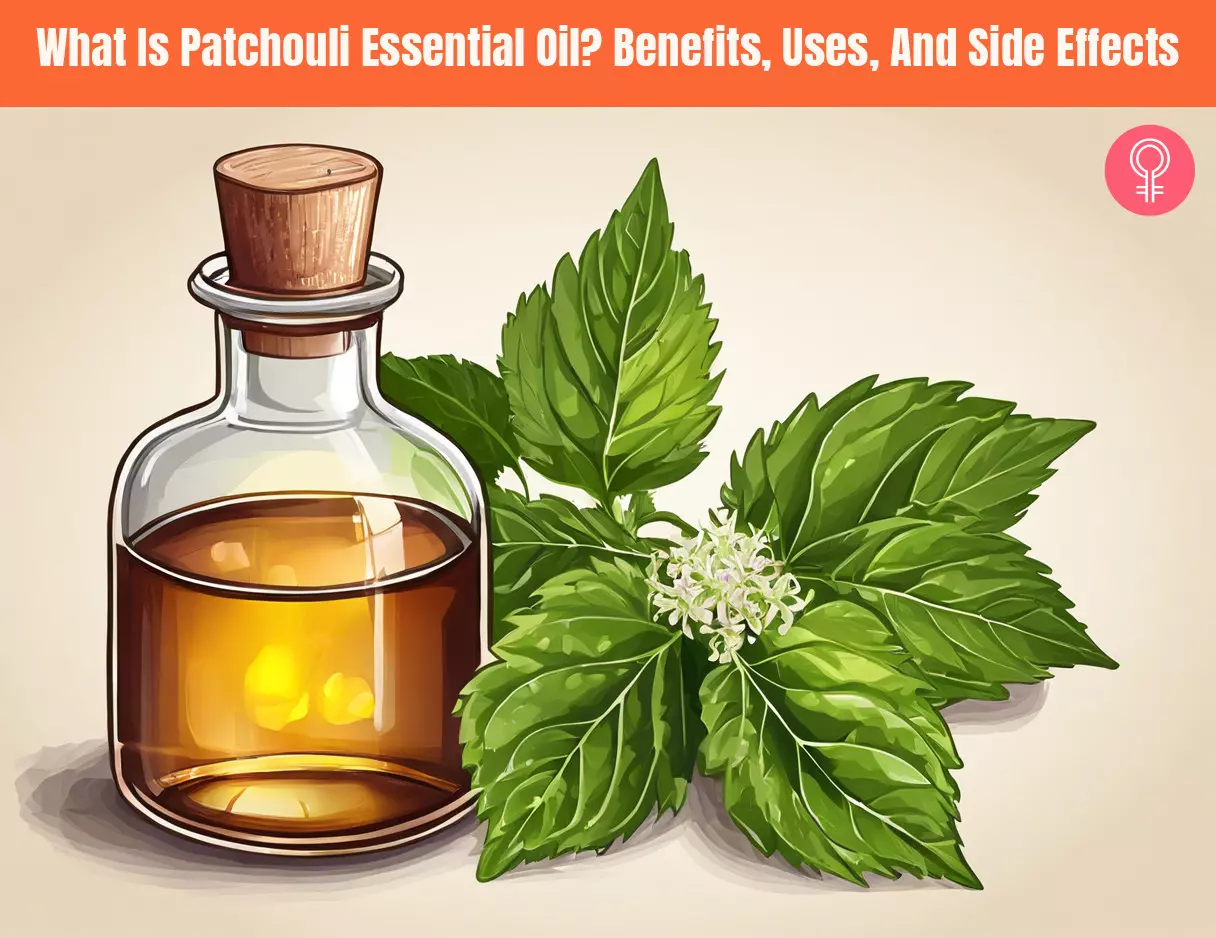
Image: Stable Diffusion/StyleCraze Design Team
Personal Experience: Source
StyleCraze's articles are interwoven with authentic personal narratives that provide depth and resonance to our content. Below are the sources of the personal accounts referenced in this article.
i. Patchouli Essential Oil: Complete Benefits & Uses Guidehttps://madewithoils.com/patchouli-essential-oil/
References
Articles on StyleCraze are backed by verified information from peer-reviewed and academic research papers, reputed organizations, research institutions, and medical associations to ensure accuracy and relevance. Read our editorial policy to learn more.
- Essential oil of patchouli
https://onlinelibrary.wiley.com/doi/full/10.1002/ffj.3418 - An introduction to patchouli (Pogostemon cablin Benth.) – A medicinal and aromatic plant: It\’s importance to mankind
https://cigrjournal.org/index.php/Ejounral/article/view/2289/1746 - A Comprehensive Review on the Phytochemical Constituents and Pharmacological Activities of Pogostemon cablin Benth.: An Aromatic Medicinal Plant of Industrial Importance
https://www.ncbi.nlm.nih.gov/labs/pmc/articles/PMC6272783/ - Prevention of UV radiation-induced cutaneous photoaging in mice by topical administration of patchouli oil
https://pubmed.ncbi.nlm.nih.gov/24747030/ - Effects of topical application of patchouli alcohol on the UV-induced skin photoaging in mice
https://www.sciencedirect.com/science/article/abs/pii/S0928098714002863 - Essential Oils: Magical Ingredients for Skin Care
https://www.sciencepublishinggroup.com/journal/paperinfo?journalid=215&doi=10.11648/j.jps.20210902.14 - Formulation and evaluation of transdermal patch of indomethacin containing patchouli oil as natural penetration enhancer
https://www.researchgate.net/publication/320802968_Formulation_and_evaluation_of_transdermal_patch_of_indomethacin_containing_patchouli_oil_as_natural_penetration_enhancer - PATCHOULI ALCOHOL ENRICHMENT FROM PATCHOULI OIL USING MOLECULAR DISTILLATION UNIT
https://journal.ipb.ac.id/index.php/jurnaltin/article/view/4234 - Effects of Short-Term Inhalation of Patchouli Oil on Professional Quality of Life and Stress Levels in Emergency Nurses: A Randomized Controlled Trial
https://www.liebertpub.com/action/oidcStart?redirectUri=%2Fdoi%2Ffull%2F10.1089%2Facm.2020.0206 - Effect of Melaleuca leucadendron Cananga odorata and Pogostemon cablin oil odors on human physiological responses.
http://ejournalmapeki.org/index.php/wrj/article/view/42/41 - Effects of fragrance inhalation on sympathetic activity in normal adults.
https://pubmed.ncbi.nlm.nih.gov/12499579/ - Sedative effects of inhaled essential oil components of traditional fragrance Pogostemon cablin leaves and their structure–activity relationships
https://www.sciencedirect.com/science/article/pii/S222541101500022X - Anti-depressant activity of patchouli alcohol microcapsule
https://hcvalidate.perfdrive.com/fb803c746e9148689b3984a31fccd902//?ssa=7a7f235f-edae-4f58-a1b3-57aa73d7be65&ssb=19653267501&ssc=https%3A%2F%2Fiopscience.iop.org%2Farticle%2F10.1088%2F1742-6596%2F1321%2F2%2F022039%2Fpdf&ssi=bc5c4ba0-8427-42ca-aa60-c5e4d5bfb34a&ssk=support@shieldsquare.com&ssm=49626141726879371105531281742818&ssn=f7642c95ad1100493cd395877c2c1901de8d21f64d05-9bf4-4675-a4ad76&sso=5ebd9db2-6000c91d3d4beeeb4d96b07ab1be05654f388d206e5ec61a&ssp=11444349921695928107169591065548587&ssq=72067087910207141220179102009423647314026&ssr=MTA2LjIwNS45OS43MQ==&sst=Screaming%20Frog%20SEO%20Spider/18.5&ssu=&ssv=&ssw=&ssx=W10= - Evaluation of Anti-Depressant Activity of Pogostemon Cablin (Labiatae)
https://www.sphinxsai.com/Vol.3No.1/pharm_jan-mar11/pdf/JM11(PT=12)%20pp%2058-61.pdf - Antibacterial and Antifungal Activity Analysis of Essential Oil of Pogostemon cablin (Blanco) Benth
https://www.banglajol.info/index.php/BJM/article/view/28446 - Comparative antimicrobial activity of pogostemon cablin(patchouli) essential oil (PEO) and conventional antimicrobials against clinically important microbes
https://www.wjpsonline.com/index.php/wjps/article/view/antimicrobial-activity-pogostemon-cablin/275 - Effect of patchouli (Pogostemon cablin) essential oil on in vitro and in vivo leukocytes behavior in acute inflammatory response
https://www.sciencedirect.com/science/article/abs/pii/S0753332216310605 - Anti-inflammatory activity of β-patchoulene isolated from patchouli oil in mice
https://www.sciencedirect.com/science/article/abs/pii/S0014299916302400 - α-Bulnesene a PAF inhibitor isolated from the essential oil of Pogostemon cablin
https://www.sciencedirect.com/science/article/abs/pii/S0367326X06002243 - Anti-inflammatory effect of patchouli alcohol isolated from Pogostemonis Herba in LPS-stimulated RAW264.7 macrophages
https://www.ncbi.nlm.nih.gov/pmc/articles/PMC3440699/ - Antimicrobial properties of plant essential oils against human pathogens and their mode of action: an updated review
https://www.ncbi.nlm.nih.gov/pmc/articles/PMC5206475/ - Essential Oil Safety 2nd ed.
https://books.google.co.in/books?hl=en&lr=&id=DbEKAQAAQBAJ&oi=fnd&pg=PP1&dq=Essential+Oil+Safety+2nd+ed.&ots=jy7AA7wVGj&sig=UzypBBWjIIM5gsO5VmU4K1Nj-VI#v=onepage&q=patchouli&f=false - Inhalation of Patchouli (Pogostemon Cablin Benth.) Essential Oil Improved Metabolic Parameters in Obesity-Induced Sprague Dawley Rats
https://www.ncbi.nlm.nih.gov/pmc/articles/PMC7400805 - Antidepressant-like Activity of Patchouli Oil var. Tapak Tuan (Pogostemon cablin Benth) via Elevated Dopamine Level: A Study Using Rat Model
https://www.ncbi.nlm.nih.gov/pmc/articles/PMC9145128/ - Patchouli (Pogostemon cablin Benth): Botany, agrotechnology and biotechnological aspects
https://www.sciencedirect.com/science/article/abs/pii/S0926669016302485 - Patchouli (Pogostemon cablin Benth): Botany, agrotechnology and biotechnological aspects
https://www.sciencedirect.com/science/article/abs/pii/S0926669016302485
Read full bio of Rowinda Dimech
Read full bio of Ravi Teja Tadimalla
Read full bio of Sindhu Koganti










